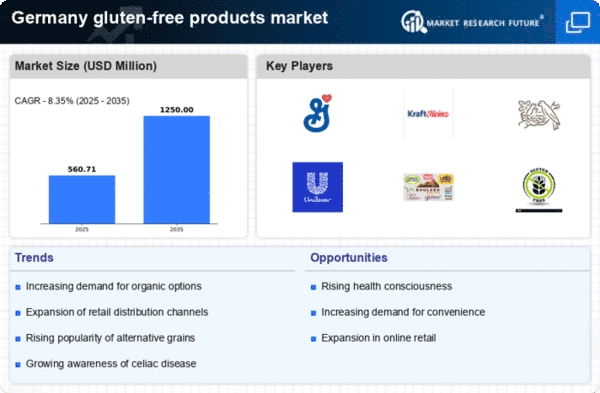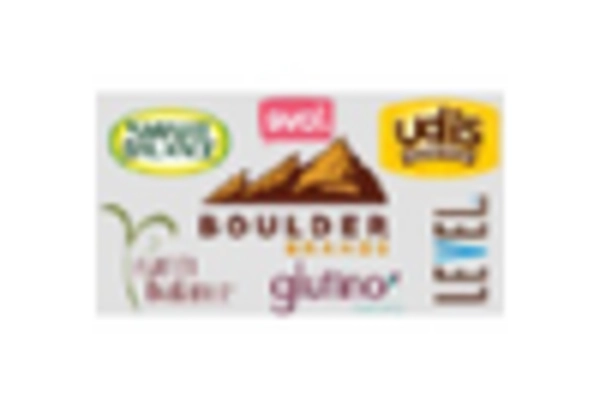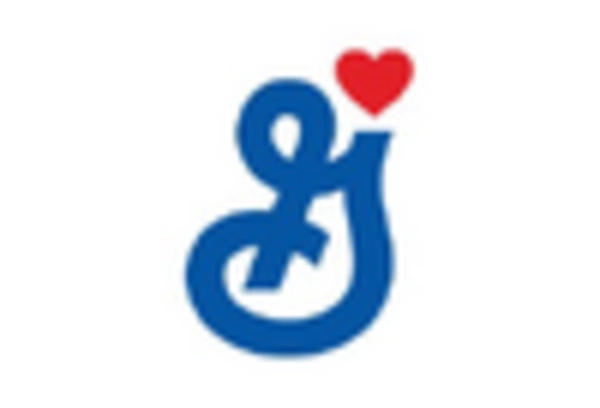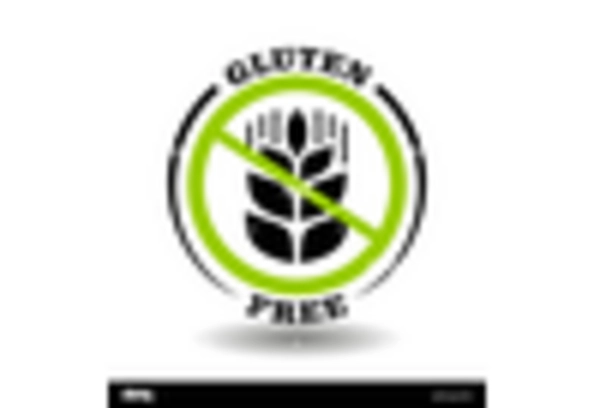Influence of Dietary Trends
Dietary trends, such as the rise of plant-based and clean eating movements, are significantly impacting the gluten free-products market. In Germany, consumers are increasingly adopting diets that prioritize whole, unprocessed foods, which often include gluten free options. This shift is supported by a growing body of research suggesting that gluten free diets may offer health benefits even for those without gluten sensitivities. The gluten free-products market is responding to this trend by diversifying its product lines to include organic and natural gluten free items, appealing to a broader audience. As these dietary trends continue to gain traction, the market is likely to expand further.
Increased Retail Availability
The expansion of retail channels for gluten free products is a vital driver for the gluten free-products market. In Germany, supermarkets and health food stores are increasingly dedicating shelf space to gluten free items, making them more accessible to consumers. This increased availability is crucial, as it allows individuals with gluten sensitivities to find suitable products more easily. Additionally, online shopping platforms are also contributing to this trend, providing a wider range of gluten free options. The gluten free-products market is thus benefiting from enhanced distribution strategies, which are likely to lead to higher sales and greater consumer awareness of gluten free offerings.
Rising Celiac Disease Awareness
The increasing awareness of celiac disease among the German population is a crucial driver for the gluten free-products market. As more individuals are diagnosed with this autoimmune disorder, the demand for gluten free options has surged. Reports indicate that approximately 1 in 100 people in Germany are affected by celiac disease, leading to a heightened need for gluten free products. This awareness not only influences consumers' purchasing decisions but also encourages manufacturers to expand their gluten free offerings. The gluten free-products market is thus experiencing a significant shift, with more brands catering to this specific dietary requirement, ensuring that those affected have access to safe and suitable food options.
Growing Demand for Healthier Alternatives
The gluten free-products market is witnessing a notable increase in demand for healthier food alternatives. As consumers in Germany become more health-conscious, they are actively seeking products that align with their dietary preferences. This trend is reflected in the rising sales of gluten free items, which have shown an annual growth rate of around 10% in recent years. The gluten free-products market is adapting to this shift by introducing a variety of innovative products that not only cater to gluten intolerant individuals but also appeal to health-conscious consumers. This dual appeal is likely to further drive market growth as more people opt for gluten free options as part of a balanced diet.
Regulatory Support for Gluten Free Labeling
Regulatory frameworks in Germany that support gluten free labeling are playing a significant role in the gluten free-products market. The European Union has established strict guidelines for gluten free claims, ensuring that products labeled as gluten free contain less than 20 ppm of gluten. This regulatory support not only protects consumers but also fosters trust in gluten free products. As a result, the gluten free-products market is experiencing growth, as consumers feel more confident in purchasing products that meet these standards. This regulatory clarity is likely to encourage more manufacturers to enter the market, further expanding the range of gluten free options available to consumers.
















